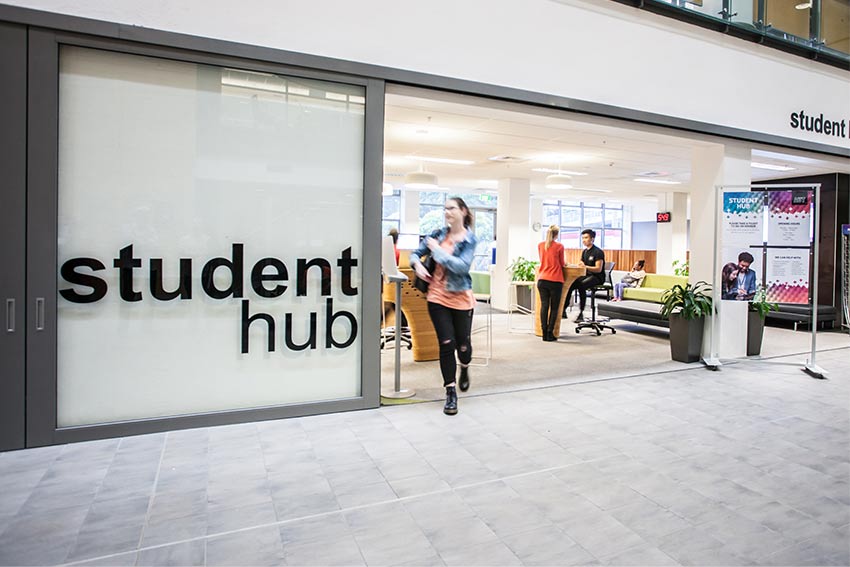When you arrive at AUT as an international student
Make sure you prepare for your trip to New Zealand and your first few days in Auckland before you start your studies at AUT.
Book your transport from Auckland airport to your accommodation
You should fly into Auckland International Airport. Make sure you arrange your travel from Auckland Airport to your accommodation before boarding your flight to Auckland.
Transport information (Auckland Airport website)
What you’ll need at the airport
As well as your luggage and passport, bring:
- Offer of Place
- Visa
- Driver’s licence (you can use your licence for a year – after that you must get a New Zealand licence)
- Copy of your birth certificate
- Emergency cash (around NZ $500 will get you through the first few days)
- Insurance certificates:
- If you've paid for Studentsafe bring a copy of your Acknowledgement of Payment letter showing you have purchased AUT's preferred insurance cover
- If you've bought an alternative insurance policy from a provider on an approved list, bring a copy of that policy (for example Southern Cross International Student Travel Insurance, Unicare - NZ Student Plan, Orbit Protect - Prime Plan)
Items to bring to New Zealand
You should be able to buy anything you need here in New Zealand.
Some things you might want to consider bringing with you:
- Electrical items
- If you bring electrical items, make sure you bring the correct adaptor (or you can buy one here).
- Electricity is supplied in New Zealand at 230 volts, 50 hertz.
- Clothing
- University students dress casually, but you may need formal clothing for special occasions. You will need clothes for winter and for summer, and you should bring a waterproof jacket.
- Prescription medication
Most medication is available in New Zealand, but check with your doctor first.
Items you shouldn't bring
Start your study in New Zealand the right way by not carrying banned biosecurity items in your luggage. New Zealand has very strict laws to protect our environment and industries from pests and diseases.
Don’t pack:
- Fresh fruit and vegetables
- Food (cooked, uncooked, fresh, preserved, packaged or dried)
- Plant products
There are also prohibited customs items you can't bring into New Zealand. If you are unsure if you can bring an item, declare it when you land in New Zealand. You can be fined if you don't declare something.
To find out more visit the Biosecurity and Customs New Zealand websites.
Biosecurity New Zealand websiteCustoms New Zealand website
If you need medical care
If you need urgent medical care in the first few days after you arrive, ask at your accommodation where the nearest accident and medical clinic is. They are usually open 24 hours a day, 7 days a week.
Once you are at AUT, you can enrol at the AUT Student Medical Centre on campus for your general health care.
In a life-threatening medical emergency, call 111.
If you're bringing prescription medicines you should:
- Have a note from your doctor (in English) that says:
- The name of the medicine and what it is for
- How much you need to take
- Who your doctor is and their contact details
- Keep the medicines in their original packaging
- Have enough to last you for a while within the permitted quantities determined by customs regulations
Starting your life in Auckland as an international student
Ready to start your life as an international student at AUT? Find out more about settling into life in Auckland – from accommodation and where to shop, to how to set up banking, your mobile phone and internet.

New Zealand values and customs

Understanding New Zealand rules, customs and laws, and what to expect in New Zealand will help you feel comfortable with New Zealanders and make the most of your time here.
Contact us

For international student support while you’re studying at AUT contact the Student Hub. Our student advisors can help with:
- Visa and immigration matters
- Insurance
- Accommodation
- Life in New Zealand
- Talking to faculties
- Homesickness
Phone 0800 AUT UNI (0800 288 864)
or +64 9 921 9779
24/7 Support: 0800 AUT SAFE (288 7233) and +64 9 921 9997 - for emergencies only